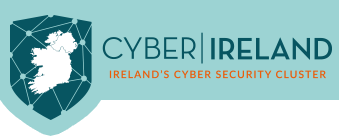What to Pay & Be Paid in the Irish Cyber Security Market
Cybershark Recruitment has published their first Irish Cyber Security Salary Survey – offering in-depth market insights into salaries and key benefits within the cyber security industry in Ireland.
Daniel Murray, Managing Director of Cybershark Recruitment, surveyed 650 cyber security professionals in Ireland between November and December 2021. The purpose of the research was to educate both candidates and clients with factual, data-driven information about the Irish Cyber Security market.

“Often we hear that salary expectation are too high or the employer is not paying enough. The survey is an independent benchmark our clients can use to compare their remuneration with the rest of the market and give candidates definitive answers on market rates for their particular skillsets”
– Daniel Murray
Daniel has recently achieved his CIPD and understands the pressure HR & Recruitment Departments face; to cut attrition, attract the top talent and provide the business with insights on the market about wage expectations, both internally and externally.
The salary survey gives recruitment professionals accurate information when engaging with business leaders to develop a recruitment strategy and an attractive benefits package. This could include remote or hybrid working, a competitive salary, education benefits, or the offer of a bonus to reduce employee turnover and consistently grow the Cyber Security team.
So what was particularly interesting about the data that came from the survey?
The Speed the Market Moves
Cybershark Recruitment works with some of the top Irish companies and has seen firsthand what the survey data says; when an organisation finds the right candidate, they need to move quickly.
25% of candidates get snapped up just two weeks after submitting their CV. That is almost unheard of in other industries. The majority of respondents, 54%, said they were in a new role between 0-4 weeks, which is still extremely quick.
HR Departments should use this invaluable information to reassess their own recruitment processes and ask;
- How long does it take hiring managers to review CVs?
- Are we holding too many rounds of interviews?
- What does it cost the business to leave this role open for six months?
Some organisations have roles open for longer than six months. With over 3.5 million Cyber Security roles open globally, companies who move not moving fast enough when they have identified the right candidate with the necessary skill set will lose out to another organisation.
Salary Disparity Across the Country
Based on the cost of living, you might expect to find the highest salaries (by some margin) in Dublin. However, not according to the Salary Survey.
Cybershark Recruitment anticipates having enough information to look at the salary bandings county by county next year. Taking the data from Cork and Dublin, there isn’t a huge disparity between these cities, which is surprising.
We see an inconsistency in the 10-15 Years Experience bracket, where Dublin security professionals earn 11% more than their counterparts in Cork. When you take the rental (average) difference between Cork – €1398 (RTB.ie) and Dublin – €1,820 (RTB.ie), Dublin is 30% higher, which makes it a minor difference.
Giving candidates the option of hybrid working, working from home and coming to the office once or twice a week increases the talent pool for companies. Hiring employees regardless of their location in Ireland ensures that employers recruit the top talent available. Hybrid working helps businesses reduce office size and save on corporate rents with candidates hot-desking when in the office.
It also allows candidates and employees living outside of the capital, where costs are significantly higher, to enjoy a better cost of living and better work-life balance.
Moving Company vs Staying With Your Company?

The data around this issue was surprising. The average salary increase for those who moved organisations was 17.96% vs 8.84% for professionals receiving a pay rise from their current employer.
This section gets to the root cause of “the great resignation”. 70.42% of respondents are actively looking to or willing to change roles if approached. The pressures felt by employees over the last two years, coupled with the potential lack of recognition brought about by a salary increase, makes employees seek greener grass.
HR departments must look at what they offer to employees in their organisation. Salary is a priority, but not the be-all and end-all. Candidates who Cybershark Recruitment regularly speak to are more concerned with remote or hybrid work options or are professional development opportunities available.


